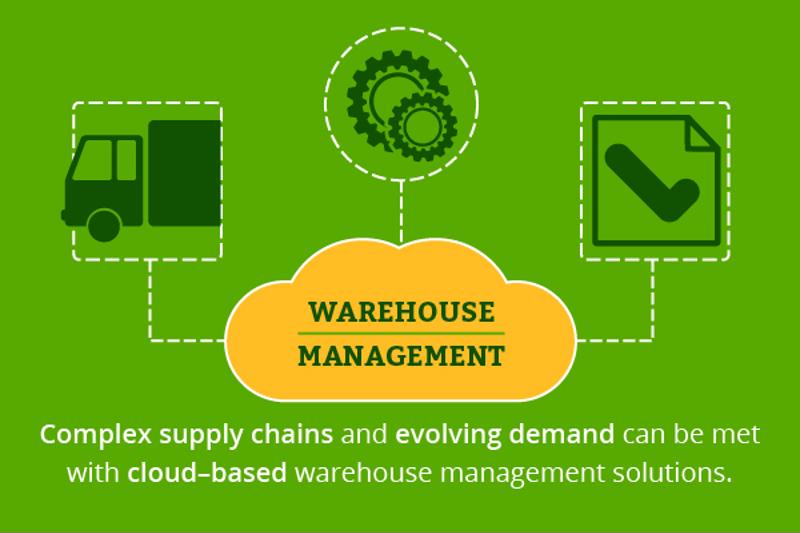Effective warehouse management is one of the most important parts of conducting business in any number of industries. If a company’s warehouses are poorly run, products may be more difficult to move through the supply chain, pushing delivery dates back. As a result, profits could be impacted, and customers disgruntled, leading to other negative consequences down the line.
Transportation and logistics
Today’s supply chains continue to grow in complexity. For instance, technology writer Parag Khanna recently tweeted an image describing the global paths our day-to-day items like iPhones, laptops and Levi’s jeans take before they even reach the stores. The colored lines denoting different products crisscross the world before alighting on their destinations, increasing in complexity with each step.
 Effective warehouse management solutions are critical.
Effective warehouse management solutions are critical.As a result of this complicated supply chain landscape, businesses are turning to supply chain management systems to help them collect, parse and display data gathered throughout the global process. A recent report from Transparency Market Research noted that the transportation and logistics industry, especially, depends on solutions like this to ensure high mobility among workers and increase productivity, thereby improving revenues down the road.
By taking all of the important variables into account, warehouse management solutions help small and medium-sized businesses, in particular, to reduce costs associated with warehouse management in general. In fact, the Transparency Market Research report found that cloud-based WMS tools go a long way toward keeping operational expenditures within budget. The extra visibility and more complete picture of the warehouse can serve to increase accuracy for the end customer, which in the long run means a lower cost of operations for the warehouse itself.
Myriad advantages of WMS
Complex supply chains and evolving demand need to be met with the right tools for the job. This is where warehouse management solutions can come in handy. By investing in these kinds of technologies, managers can have a more comprehensive view of the warehouse floor, which leads to actionable data and better decisions in the long run.
According to FoodBev Media contributor Alex Mills, the main benefits of an effective warehouse management system are:
- Reduced manual intervention.
- Increased data accuracy.
- Ability to quickly and easily share information.
Additional advantages include improved customer service and increased productivity. However, the availability and visibility of warehouse data is the king of WMS benefits, and making sure managers have the information they need to make the best decisions possible is key.
“The availability and visibility of warehouse data is the king of WMS benefits.”
Leading WMS Technologies
In the warehouse, there’s not single piece of technology that does it all. It involves WMS software, mobile data collection such as barcode and RFID scanners, labeling systems and infrastructure, and sophisticated wireless infrastructure. Inspirage has put together a fully integrated WMS Solution leveraging best-of-breed WMS technologies, including software vendors such as Oracle and Logfire (Cloud WMS), as well as supporting solutions like Skipjack, Intellinum, Zebra, and Honeywell.
Inspirage’s complete solution offers companies a way to maintain oversight over their warehouses and make sure the right decisions are made so that projects remain profitable. In this time of volatile transportation costs and uncertainties in other parts of the supply chain, it’s imperative to streamline warehouse operation in general in order to keep overall business cost down.
Contact Inspirage today for more information.